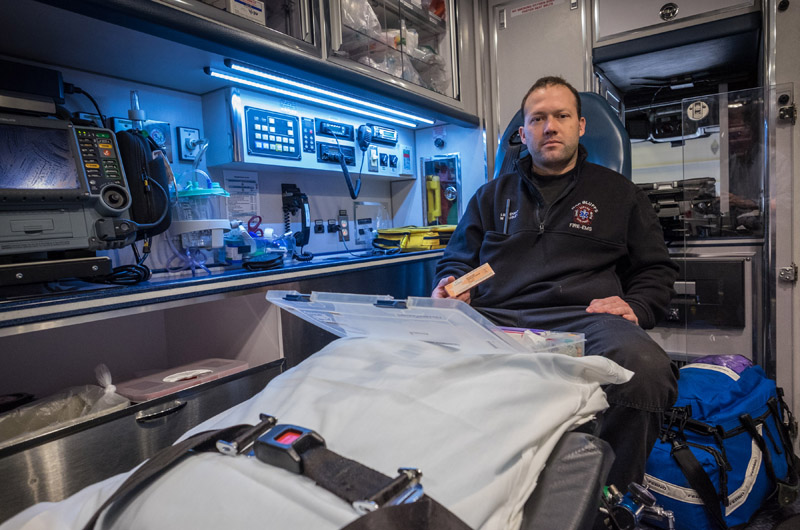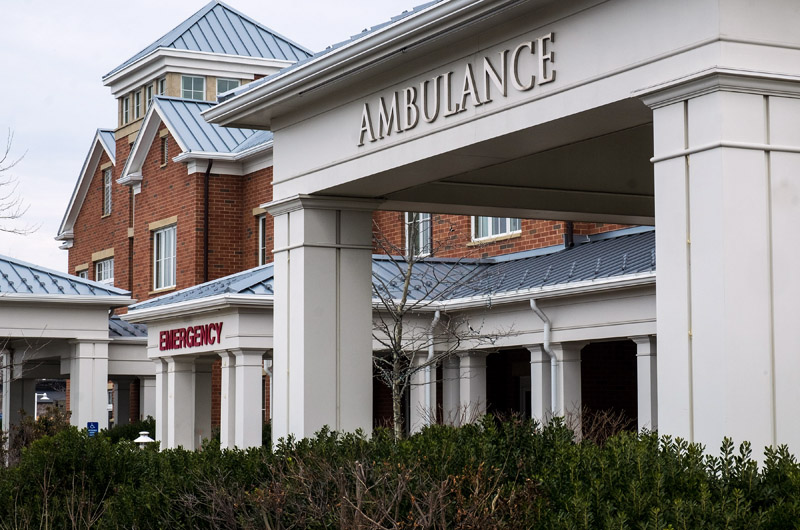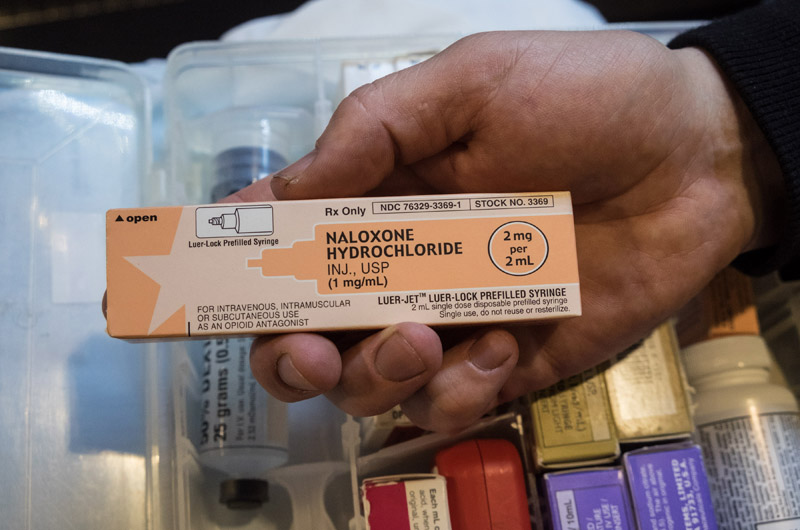With the stigma of drug addiction still strong, accurate statistics on the heroin epidemic are difficult to gather. But one thing is clear. The overdose-reversing drug naloxone, often known by the brand name Narcan, is saving lives.
According to Martha’s Vineyard Hospital records, nearly once a week, on average, someone arrives at the emergency room in crisis with an opioid overdose. Dr. Karen Casper, the affiliated medical director for EMS at the hospital, said the emergency room staff treated 45 people for opioid overdoses between October 2014 and October 2015. The rate has remained about the same since then, she added.

That figure counts people with a primary diagnosis of drug overdose. It does not include people who are addicted to heroin, but come to the emergency room for a different, though possibly related, medical problem.
“The majority of them are receiving Narcan in the field,” Dr. Casper said. “That time is critical. Many times, with their intervention in the field, our patients are already improving by the time they come to the emergency room.”
An overdose of heroin or other opiates overwhelms nerve receptors in the brain, shutting down involuntary functions, including breathing. Narcan, which can be administered intravenously or by nasal spray, reverses the effect of heroin by knocking the opioids off those receptors, allowing the patient to begin breathing again.
In addition to emergency medical technicians, police officers in Tisbury, Edgartown, Oak Bluffs and Aquinnah now carry Narcan on patrol and are trained to use it.
“A lot of patients actually come in and are doing much, much better,” Dr. Casper said. “Our treatment in the emergency room becomes keeping them breathing, and continuing to try to reverse the opiates, and then check for any signs of damage that occurred when they weren’t breathing.”
For some, however, Narcan comes too late. The difference between surviving a heroin overdose and dying from it can be a matter of seconds.
“The unfortunate people that didn’t get the Narcan soon enough and stopped breathing long enough, they die,” Dr. Casper said. “Then we do cardiac resuscitation, and we do our best. The longer you’re down without breathing, the less likely you are to recover.”
Oak Bluffs fire and ambulance chief John Rose takes every opportunity to get the word out about how important it is to call for help quickly in the event of an overdose. Massachusetts law provides a degree of immunity from prosecution for anyone who calls for medical help to treat an overdose. A person who seeks medical help for themselves or someone else cannot be prosecuted for possession of drugs, if the drugs are found as a result of the call for help.

“We see more and more of it,” Chief Rose said. “Just last week there was the death of a young man, we couldn’t get there soon enough. We can make such a difference if we can get there quickly.”
“We see our police departments can sometimes get to scenes before EMS,”
Dr. Casper said. “If we can get every police department on this Island on board with Narcan, we can save more lives.”
The Edgartown police department has been equipped with Narcan for a little more than a year, and Det. Michael Snowden estimates officers have used the drug five times.
“They used it twice just in the last month and a half,” he said.
According to Lieut. Matt Bradley of Oak Bluffs EMS, medics administered Narcan 12 times in 2014, 11 times in 2015, and four times so far this year. He cautions that since Narcan is safe and has no side effects, a dose is very occasionally administered as a precaution, and very occasionally administered to a patient who is not overdosing, but whose symptoms mimic an overdose.
“We err on the side of caution,” he said.
Tri-Town ambulance chief Ben Retmier reports that his department administered five doses of Narcan in 2014, five in 2015, and one so far this year.
Narcan costs about $20 per dose. On Cape Cod, Narcan is available without a prescription. At a meeting Thursday of the Martha’s Vineyard Youth Task Force,
coordinator Theresa Manning said her organization has begun to approach local pharmacies about carrying Narcan on the Island, and Conroy’s will be the first to do so. Purchasers will be trained in its use by the pharmacist, she said.
Mr. Retmier said as the use of the overdose reversing drug increases, there is concern that addicts may have a false sense of security.
“From the research I’ve seen and read,” Mr. Retmier said, “people say ‘I’ll overdose and get the Narcan and I’ll be fine.’ They don’t realize what the medicine actually does. You’re breathing again, but half an hour later you’re overdosing again because you still have heroin in your system.”
Narcan is effective in blocking opioid overdoses for 60 to 90 minutes. But depending on the strength of the heroin or other opioid, the amount injected, and other factors, it can wear off in as few as 20 minutes, and sometimes a second dose is required in the field or in the emergency room.
The effect of Narcan is so dramatic that in some cases, patients feel relatively normal after receiving it, according to first responders. Dr. Casper is concerned that addicts may refuse further medical treatment after they are revived with Narcan.
“People using these drugs need to realize that you can’t count on one dose of Narcan saving you,” Dr. Casper said. “If you need Narcan, you need medical attention. It may not be enough.”
Medics say in some cases they are called to respond to a patient who was previously treated with Narcan, but overdoses again within a short period of time. In one case, medics responded to a patient who overdosed on two successive evenings.
“I have a lot of compassion for these people,” Dr. Casper said. “It’s such a multi-faceted problem when a person has substance abuse. We all have to try our best to be supportive and try to be understanding.”
Emergency room staff also see a disturbing number of people who have been treated for an opioid overdose before.
“Too many,” Dr. Casper said. “It’s just sad.”







Comments (12)
Comments
Comment policy »